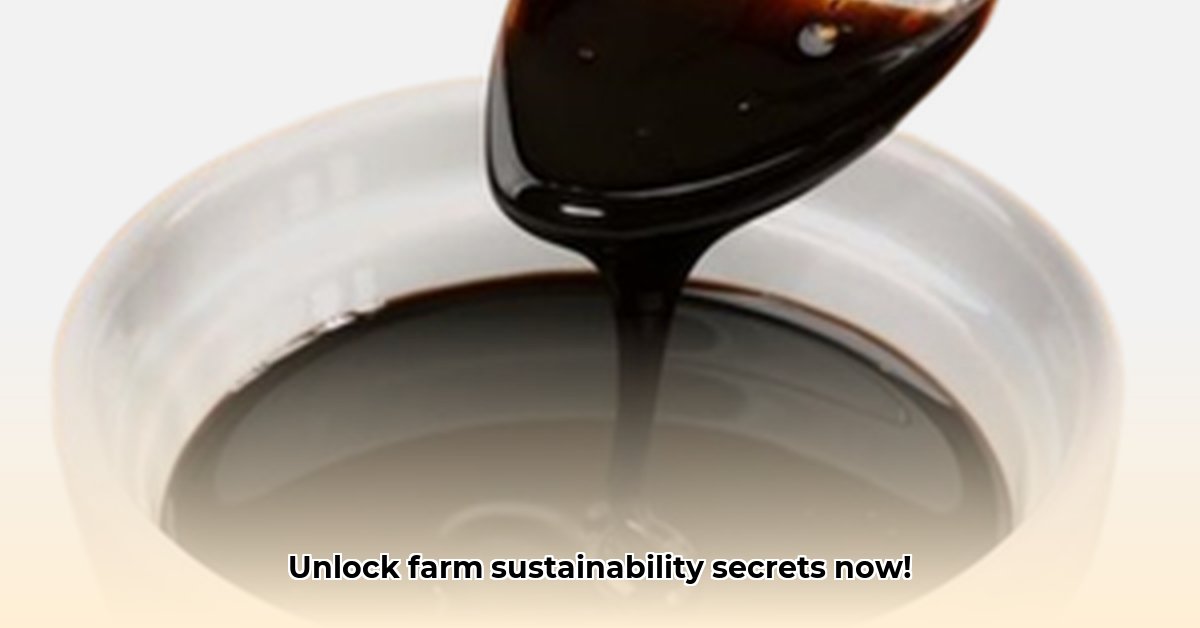
Molasses Tractor Supply: A Sweet Deal for Sustainable Farming?
Thinking about ways to enhance your farm's sustainability and profitability? Consider molasses, a readily available and surprisingly versatile feed supplement found at your local Tractor Supply. This byproduct of the sugar industry offers a cost-effective energy boost for livestock, potentially reducing reliance on more expensive feed options. But is molasses truly a sustainable choice, and how can you integrate it effectively into your farming practices?
For more information on sourcing molasses, check out this helpful resource: Molasses Information.
Molasses, a byproduct of sugar cane or sugar beet processing, represents a valuable resource previously considered waste. Its readily digestible carbohydrates provide a quick energy source for livestock, supplementing their regular diets. This repurposing of a by-product aligns with principles of circular economy and reduces landfill waste, contributing positively to environmental sustainability. However, before embracing molasses wholeheartedly, let's critically examine its benefits and drawbacks.
"Molasses offers a significant economic advantage over conventional feed supplements," says Dr. Emily Carter, Agricultural Extension Specialist at the University of California, Davis. "However, its nutritional profile varies, emphasizing the need for careful monitoring of livestock health." This variability underscores the importance of informed decision-making in its application.
Is it truly cost-effective? While molasses is generally inexpensive, fluctuations in sugar prices can affect its cost. Moreover, its nutritional profile necessitates a balanced feeding strategy, potentially requiring supplementary feed components. This implies that while initial costs might be lower, the overall cost-effectiveness needs careful evaluation based on individual farm circumstances.
What about animal health? While providing readily available energy, molasses alone doesn’t fulfill all nutritional requirements. Its lower protein content and varied mineral composition, particularly potassium, demand careful integration into a balanced feeding plan. Over-reliance on molasses can result in mineral imbalances, potentially impacting animal health.
Choosing Sustainable Molasses: A Step-by-Step Guide
The sustainability of molasses extends beyond its utilization; it's intrinsically linked to the sustainability of sugar production itself. Sugarcane and sugar beet cultivation require substantial resources – land, water, and often, pesticides. Therefore, consciously selecting sustainably produced molasses is paramount.
How can you ensure sustainable sourcing? Follow these steps:
Identify Sustainable Suppliers: Research local and regional suppliers committed to sustainable agricultural practices. Look for certifications such as USDA Organic or Fair Trade.
Ask about Production Methods: Directly contact suppliers to inquire about water usage, pesticide application, and overall environmental impact during sugar production. Transparency is key.
Consider Transportation: Opt for local suppliers to minimize transportation distances and associated carbon emissions – a crucial aspect of reducing your farm's carbon footprint.
Request Lab Reports: Obtain lab analyses to ensure molasses purity and nutrient content. This safeguards both animal health and the farm's reputation.
Evaluate Quality Control: Choose molasses free from mycotoxins (harmful molds) to prevent potential health issues in your livestock.
“Sustainable farming isn’t just about what you feed your animals; it’s about how you source it,” notes Dr. Robert Johnson, Professor of Sustainable Agriculture at Cornell University. “By prioritizing ethical and environmentally responsible suppliers, you contribute to a broader ecosystem of sustainable practices.”
Practical Application and Integration Strategies
Effective integration of molasses into your farm's feed management requires careful planning. Remember, molasses is a supplement, not a replacement, for complete feed.
Gradual Introduction: Introduce molasses into your animals' diet gradually to avoid digestive upset. Monitor their responses closely.
Balanced Feeding: Ensure your animals receive a complete and balanced diet that addresses all their nutritional needs. This might involve supplementing with protein sources and other essential nutrients.
Proper Storage: Molasses is highly susceptible to spoilage. Store it in airtight containers in a cool, dry area.
Safety Precautions: Molasses is incredibly sticky. Implement safety measures to prevent spills and accidental ingestion by livestock.
Analyzing the Pros and Cons: A Balanced Perspective
| Feature | Pros | Cons |
|---|---|---|
| Cost | Significantly cheaper than many conventional feed supplements. | Price fluctuations based on sugar market; potential for additional feed costs. |
| Sustainability | Reduces agricultural waste; supports circular economy principles. | Sugar production's environmental impact remains; transport emissions need consideration. |
| Nutritional Value | Provides readily digestible sugars for energy; contains essential minerals. | Lower protein; variable nutrient profile; potential for mineral imbalances. |
| Handling | Can be challenging to handle due to its viscosity. | High viscosity can impact feed manufacturing and distribution. |
The Future of Molasses in Sustainable Agriculture
The future of molasses in sustainable agriculture hinges on advancements in sustainable sugar production. Research into reducing water consumption, minimizing pesticide use, and improving overall environmental practices within the sugar industry will directly influence the sustainability of molasses as a feed supplement. The continuous pursuit of environmentally responsible sugar cultivation is paramount for enhancing the long-term sustainability of this valuable byproduct.
In conclusion, molasses from Tractor Supply can be a valuable asset in your sustainable farming practices, offering a cost-effective energy source and reducing waste. However, responsible sourcing, careful monitoring of animal health, and a balanced feeding strategy are essential. By making informed choices and embracing sustainable practices, you can maximize the benefits of molasses while minimizing its potential drawbacks.